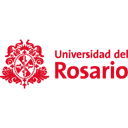This course is part of Internet de las cosas (IoT), Big Data y sus aplicaciones.
This comprehensive course introduces the Internet of Things (IoT) concept and its real-world applications across various industries. Students will explore how digital interconnection enables smart devices to communicate through networks like the Internet. The course highlights IoT's exponential growth trajectory, projecting over 50 billion interconnected smart devices by 2035 and a market value of 14-15 trillion dollars. Students will learn how IoT technology can improve healthcare delivery and industrial processes through real-time monitoring. The curriculum combines theoretical foundations with hands-on practical experiences, teaching participants how to develop scalable systems using open-source software. The course structure progresses from basic concepts to implementation, covering hardware components (Raspberry Pi, Arduino), software tools (Node-RED), and communication protocols (Serial, HTTP, MQTT). Through real-world case studies in industrial, transportation, and healthcare sectors, students will apply their knowledge to design and implement IoT solutions. This course helps develop the competencies required for Industry 4.0 readiness and gives participants practical experience with the technologies driving digital transformation.
Spanish
Spanish
What you'll learn
Understand the fundamental concepts of Internet of Things and its evolution
Identify hardware components, development boards, and sensors used in IoT applications
Utilize software tools like Node-RED to develop IoT solutions
Implement key communication protocols including Serial, HTTP, and MQTT
Develop practical IoT solutions for real-world problems
Design IoT architectures appropriate for different application scenarios
Skills you'll gain
This course includes:
PreRecorded video
Graded assessments
Access on Mobile, Tablet, Desktop
Limited Access access
Shareable certificate
Closed caption
Get a Completion Certificate
Share your certificate with prospective employers and your professional network on LinkedIn.
Created by
Provided by

Top companies offer this course to their employees
Top companies provide this course to enhance their employees' skills, ensuring they excel in handling complex projects and drive organizational success.





There are 4 modules in this course
This course provides a comprehensive introduction to the Internet of Things (IoT) and its practical applications across various industries. The curriculum balances theoretical knowledge with hands-on experience, enabling students to understand both the concepts and implementation of IoT solutions. Participants begin by exploring fundamental IoT concepts, including its definition, history, and the stages involved in developing IoT applications from conception to product certification. The course examines real-world applications in industrial, agricultural, and healthcare sectors, highlighting how IoT technology enables real-time monitoring and data analysis. Students learn about IoT architecture and solution design principles before diving into the hardware and software components essential for implementation. The technical modules cover development boards like Raspberry Pi and Arduino, various sensor types, and Node-RED programming. Communication protocols, which are critical for IoT functionality, are explored in detail, including Serial, HTTP, and MQTT protocols. The course culminates with bonus case studies that demonstrate complete IoT solutions for industrial, transportation, and healthcare applications. Throughout the curriculum, participants engage in practical exercises that reinforce theoretical concepts and develop the technical skills needed for Industry 4.0.
Secci on 1: ¿Qué es el Internet de las cosas?
Module 1
Secci on 2: Herramientas para desarrollar soluciones IoT.
Module 2
Secci on 3: Protocolos de comunicación en IoT.
Module 3
Secci on 4 (Bonus): Casos de estudio.
Module 4
Fee Structure
Individual course purchase is not available - to enroll in this course with a certificate, you need to purchase the complete Professional Certificate Course. For enrollment and detailed fee structure, visit the following: Internet de las cosas (IoT), Big Data y sus aplicaciones
Payment options
Financial Aid
Instructors

2 Courses
Biomedical Engineering Professor and IoT Specialist at Universidad del Rosario
Jefferson Sarmiento Rojas is a professor in the Biomedical Engineering program at the School of Medicine and Health Sciences, Universidad del Rosario, Colombia. He holds a bachelor's degree in electronics from Universidad Pedagógica Nacional and a master's degree in Electronic Engineering from Universidad Santo Tomás. As a member of the GIBIOME research group, his expertise spans robotics and automation, the Internet of Things (IoT), web and mobile application programming, clinical engineering, and bioinstrumentation. Sarmiento Rojas has led and contributed to projects in rehabilitation technology and software development, and he teaches courses on IoT and its applications, IoT and Big Data, and professional certification programs in these areas at URosarioX. He is recognized for his research on IoT applications in healthcare, including monitoring systems for hospital environments, and holds additional certifications in deep learning, cybersecurity, and software development

2 Courses
Biomedical and Electronic Engineer, Educator, and Researcher in Assistive Technologies
Daniel Alejandro Quiroga Torres is a professor in the Biomedical Engineering program at the School of Medicine and Health Sciences at Universidad del Rosario. He holds a degree in Biomedical and Electronic Engineering from Universidad Manuela Beltrán and is a member of the GIBIOME research group. Quiroga Torres specializes in education in engineering, bioinstrumentation, rehabilitation and assistive technologies, and the Internet of Things (IoT). He has led and contributed to projects focused on rehabilitation and the development of assistive technologies, and has published research on topics such as robotics for children with disabilities, IoT-based monitoring systems in clinical environments, and the impact of educational strategies in engineering. He teaches courses including "Introducción al Internet de las cosas (IoT) y sus aplicaciones," "Internet de las cosas (IoT) y Big Data," and "Internet de las cosas (IoT), Big Data y sus aplicaciones" at URosarioX
Testimonials
Testimonials and success stories are a testament to the quality of this program and its impact on your career and learning journey. Be the first to help others make an informed decision by sharing your review of the course.
Frequently asked questions
Below are some of the most commonly asked questions about this course. We aim to provide clear and concise answers to help you better understand the course content, structure, and any other relevant information. If you have any additional questions or if your question is not listed here, please don't hesitate to reach out to our support team for further assistance.



